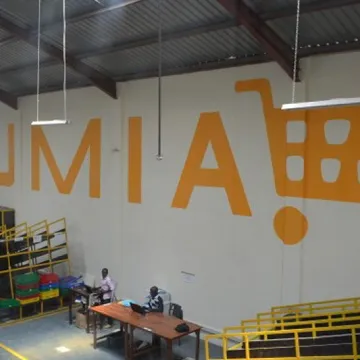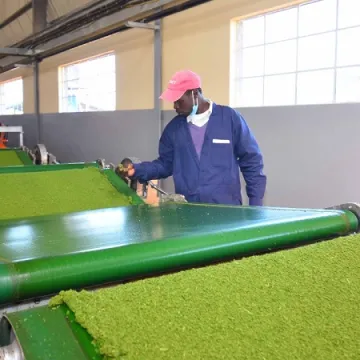Kagwe ends middlemen's chokehold on tea exports

Agriculture Cabinet Secretary Mutahi Kagwe.
All tea factories across Kenya can now actively market and sell their produce to buyers in overseas market following a policy change effected by the Ministry of Agriculture on Friday, May 2nd, 2025.
According to Agriculture Cabinet Secretary Mutahi Kagwe, the new policy shift gives the greenlight to all 142 tea factories in Kenya to market and sell the product to international buyers directly.
CS Kagwe's move is set to send shockwaves across the industry where profit sapping middle men and brokers have for decades denied millions of farmers their hard-earned profit margins.
"We want to ensure better returns for farmers, strengthen governance in the tea sub-sector, and promote transparency in smallholder tea factories," CS Kagwe said in his home county of Nyeri, during International Tea Day celebrations.
He added, "I am soon leading a high-level delegation that will include the Tea Board of Kenya (TBK), Kenya Tea Development Agency, and the East African Tea Trade Association (EATTA) to key destinations such as China, India, Russia, and the Middle East to promote Kenya's tea."
Tea auction
The CS explained that the new strategy is part of the country's efforts to increase earnings for farmers across value chains while expanding reach in global markets.
Additionally, the CS noted that his ministry is planning to unveil orthodox tea auction system under the Integrated Tea Trading System as part of measures to revamp the country's tea industry.
Orthodox tea auction, which is projected to start in June, is tailored to firm up tea distribution avenues while branching out from the traditional Cut, Tear, and Curl (CTC) green leaf.
Globally, Kenya is the third-largest tea producer and exporter of the commodity, with smallholder producers playing a prominent role in the business.
According to the Tea Board of Kenya, production for the month of February 2025 was lower by 10.83 million Kgs or 13.49 percent compared to the 55.44 million kilos produced during the same period of 2024. It was also a decrease from the 54.36 million kilos reported in the month of January this year.
The board attributed the dip in output to "hot and dry weather conditions experienced throughout the month with the exception of isolated areas over the Highlands West of the Rift Valley, Central and Highlands East of the Rift Valley which recorded minimal rainfall."





